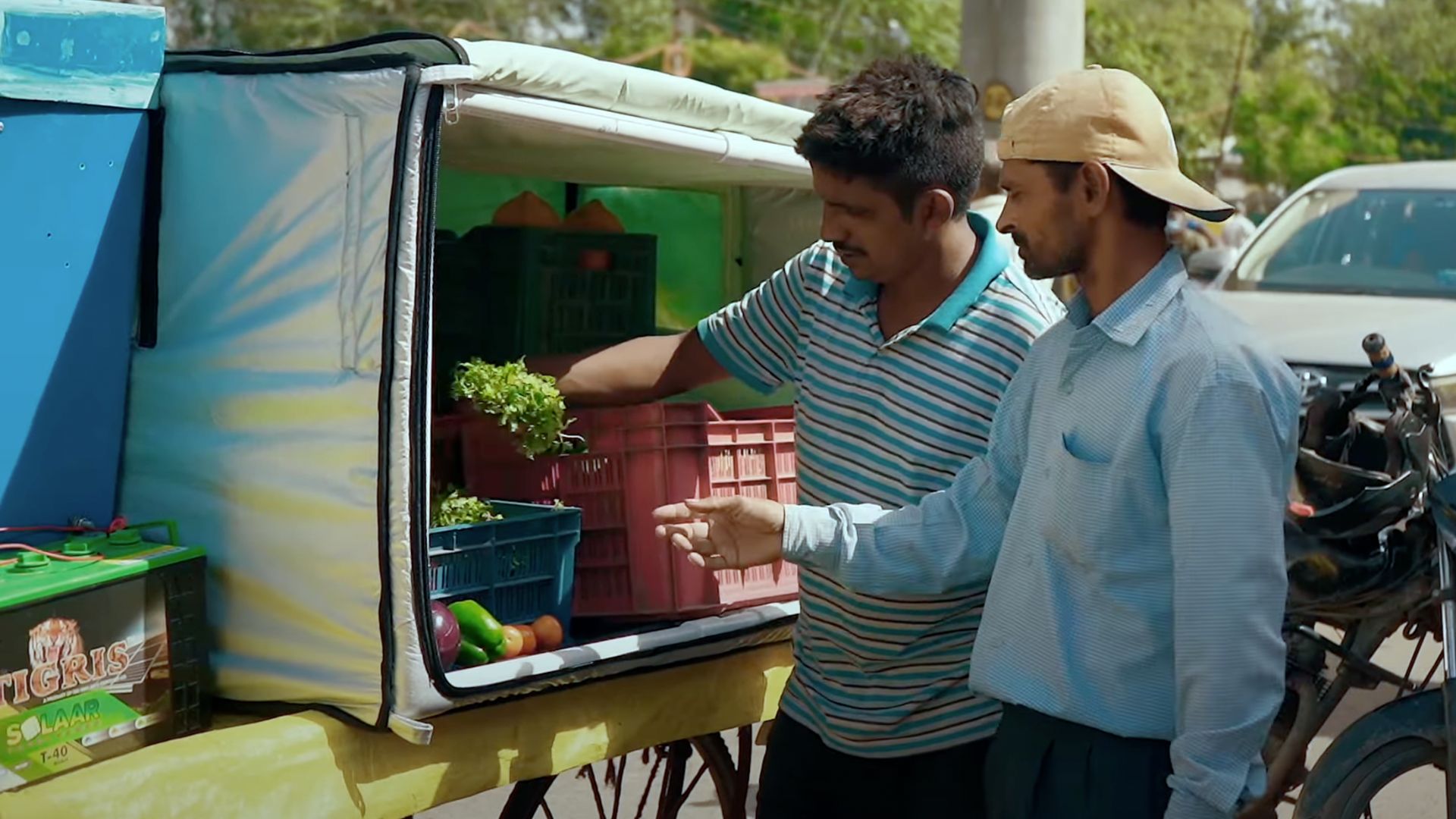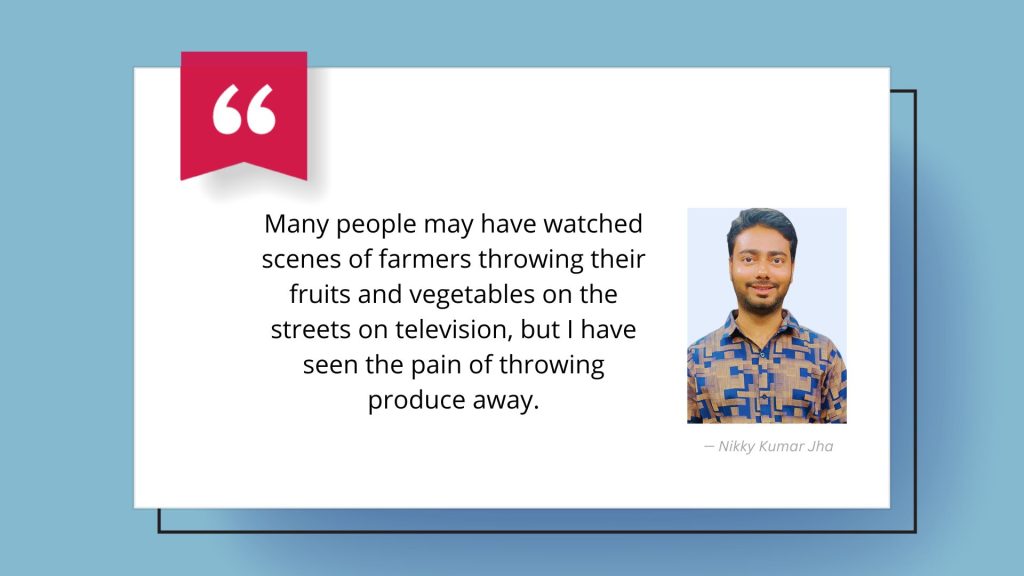Saptkrishi’s innovative storage chamber helps farmers and vendors cut losses by keeping produce fresh for up to 30 days, and its creators received mentorship thanks to the Nexus Start-up Hub.
October 2023

The Sabjikothi is solar-powered and can be set up on a simple wooden pushcart, an e-rickshaw or even a truck. (Photograph courtesy Nikky Kumar Jha)
A significant portion of fruits and vegetables in India is lost to spoilage between harvest and the market. The problem is especially acute for small farmers and street vendors. Most cannot afford refrigeration and are forced to discard excess and stale produce, leading to daily losses.
The food waste and the resulting financial loss bothered Nikky Kumar Jha while he was pursuing a master’s degree in ecology and environment studies at Nalanda University in Bihar. “I come from a small village in Bihar,” says Nikky. “Many people may have watched scenes of farmers throwing their fruits and vegetables on the streets on television, but I have seen the pain of throwing produce away.”
The pivot
Initially, Nikky developed an off-grid cold storage device, but there were technical issues. Refrigeration was expensive for many small farmers and street vendors. Frustrated, he raised the problem at a family dinner. His sister Rashmi, a biotechnologist, suggested that instead of improving cold storage, he could explore ways to preserve fruits and vegetables without refrigeration.
They worked together to co-found Saptkrishi Scientific Pvt Ltd., which produces Sabjikothi—a portable, easy-to-assemble, energy-efficient storage chamber that extends the shelf life of fruits and vegetables by 30 days using only 20 watts of power and a few liters of water. Saptkrishi was part of the 16th cohort at the Nexus Start-up Hub, a U.S. Embassy program that helps new business owners scale and market their products. Rashmi, who Nikky describes as “the backbone of the company,” still does lab research but also oversees the production of the storage chambers. “When we decided to set up our factory, my brother asked me to set up my lab there so that I could look at the workflow,” says Rashmi. “I took up the management role as well and now I have a clear bifurcation of my time—in the first half of my day I manage operations and the rest in my lab.”

Small device, big difference
The Sabjikothi, which can be solar-powered, can be set up on a simple wooden pushcart, an e-rickshaw or even a truck. It works by creating a high-humid and near-sterile isolated environment within the chamber with sophisticated technology that works on the principle of degradation of ethylene, which is produced when fruits and vegetables ripen but also contributes to perishability.
The Sabjikothi has made a big difference for small farmers and street vendors. “When I used to get vegetables without the Sabjikothi, we had to sell them quickly or until late at night so that they don’t get spoiled,” says Manoj, who sells fruits and vegetables in Kanpur. “Since I’ve installed Sabjikothi, I can sell even in the heat, and the vegetables remain fresh and cold.”
The cost of a single Sabjikothi chamber for small farmers and street vendors is Rs. 12,500, but Nikky and Rashmi are trying to reduce that to less than Rs. 10,000. More than 700 chambers have been sold, primarily in the northern and eastern parts of India, where Saptkrishi has focused thus far. The start-up plans to take the product nationwide and explore export opportunities.
Climate-friendly
The impact of the Sabjikothi extends beyond food storage, Nikky points out, because preserving fruits and vegetables reduces the amount of greenhouse gasses like methane generated by spoilage, thus helping to combat climate change. Using the Sabjikothi also reduces carbon emissions, conserves water resources and promotes sustainable practices, all of which helped Saptkrishi earn the Climate Solver Award from the World Wildlife Fund in 2022.
Saptkrishi’s supporters include the U.S. Embassy New Delhi’s Nexus Start-up Hub, the Government of India’s Startup India program, and the Startup Incubation and Innovation Centre at IIT Kanpur, among others. Nikky is grateful for his company’s success but hasn’t forgotten his roots. “As a co-founder of Saptkrishi, I get better sleep when my buyers call me and say, ‘Due to this storage chamber I have earned Rs. 400 extra today,’” he says. “I can’t explain this happiness—it is way beyond the happiness of selling a Sabjikothi.”
Steve Fox is a freelance writer, former newspaper publisher and a reporter based in Ventura, California.
Click here to sign up for the free SPAN newsletter: https://bit.ly/SubscribeSPAN
COMMENTS